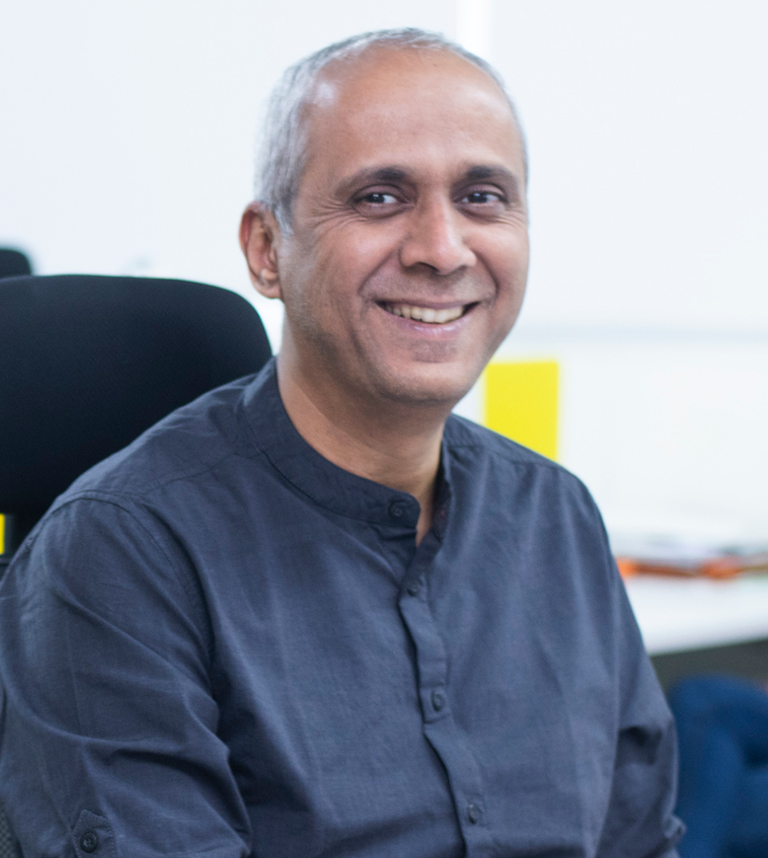Entrepreneurs
Srikanth Iyer: The Serial Entrepreneur Who Mastered the Art of Reinvention

In the world of entrepreneurship, few stories are as compelling and diverse as that of Srikanth Iyer. With a clear vision and unwavering determination, Iyer embarked on a journey that led him through various industries, constantly evolving as a founder and a leader. At the age of 23, in 1993, Srikanth Iyer joined the software product development team at Wipro as a computer science engineer. However, his stint in the corporate world lasted just 90 days. Iyer realized that he wanted to be his boss and decided to venture into entrepreneurship. He explained, “I felt I would be better off spending time on myself than work for anyone else.”
For his maiden entrepreneurial endeavour, Iyer chose a path that aligned with his goals: making quick and safe money while avoiding unnecessary risks. He found the perfect niche in assembling and selling computers, leading to the birth of Total Solutions in 1993. In a market where branded computers were costly due to high duties, Iyer recognized an opportunity. Unbranded computers could offer significant profits, with each unit generating between ₹5,000 and ₹6,000. This venture was not only lucrative but low-risk, as customers typically paid in advance.
Over the next six years, Total Solutions thrived, reaching peak revenues of ₹6 crore. The business catered to institutional clients and remained highly profitable. However, by 1997-98, Iyer observed significant changes in the market dynamics. The cost difference between branded and unbranded computers had dwindled, shrinking the earlier profit margins. Sensing stagnation, Iyer pivoted and ventured into IT maintenance contract management for larger companies. While this venture was financially rewarding, it presented scalability challenges. Recognizing the risks and limitations, Iyer was ready for another transformation.
In 2000, Srikanth Iyer co-founded Edurite Technologies, an edtech solutions provider, with Jawahar Doreswamy. The aim was clear: to leverage technology and bring the best teachers to every student. Iyer served as the CEO for seven years before TutorVista acquired the company in 2007. He continued to lead the Indian business operations of Edurite and TutorVista, eventually being part of the company’s acquisition by Pearson for $200 million in 2011. Despite his successful stint, Iyer found himself at a crossroads in 2014. He realized that his role as CEO was not aligned with his aspirations, prompting him to resign. It was a reflection of his entrepreneurial spirit: the courage to change lanes when needed.
In mid-2014, Iyer founded HomeLane along with Rama Harinath, who later departed in three years. HomeLane was Iyer’s response to the challenges faced by homeowners in India when it came to interior design and home furnishing. The market was largely unorganized, with consumers grappling with quality, budget, and timeline issues. Srikanth Iyer identified an opportunity to provide a reliable solution, offering predictable quality, budget adherence, and timely delivery. This time, he focused on building a ‘branded’ business that could serve as a pan-India interior design brand. HomeLane introduced the concept of modular furniture and streamlined its offerings to provide fewer choices, resulting in better quality, execution, and customer satisfaction. The approach paid off, allowing HomeLane to address the pain points of homeowners effectively.
Srikanth Iyer believes that understanding what not to do is as crucial as knowing what to do. It simplifies decision-making and ensures a clear path forward. His journey also led him to important entrepreneurial lessons. He recognized that raising equity capital and growing fast, even if it meant failing quickly, was a valid approach. Additionally, he learned that, at times, losses are not to be feared but embraced as part of the growth process.
Now, with HomeLane experiencing remarkable success, Iyer emphasizes the importance of building a business model that may incur short-term losses due to rapid scaling but ultimately becomes profitable. He distinguishes between building a valuable company and achieving a high valuation, highlighting the necessity of long-term profitability.
To aspiring founders in their 40s or 50s, Srikanth Iyer offers straightforward advice: “Get started while you still have 10 years left.” He underscores the importance of not giving up and making the most of the cards you’ve been dealt with. For Iyer, entrepreneurship is not about failure but about success and learning from every experience.
